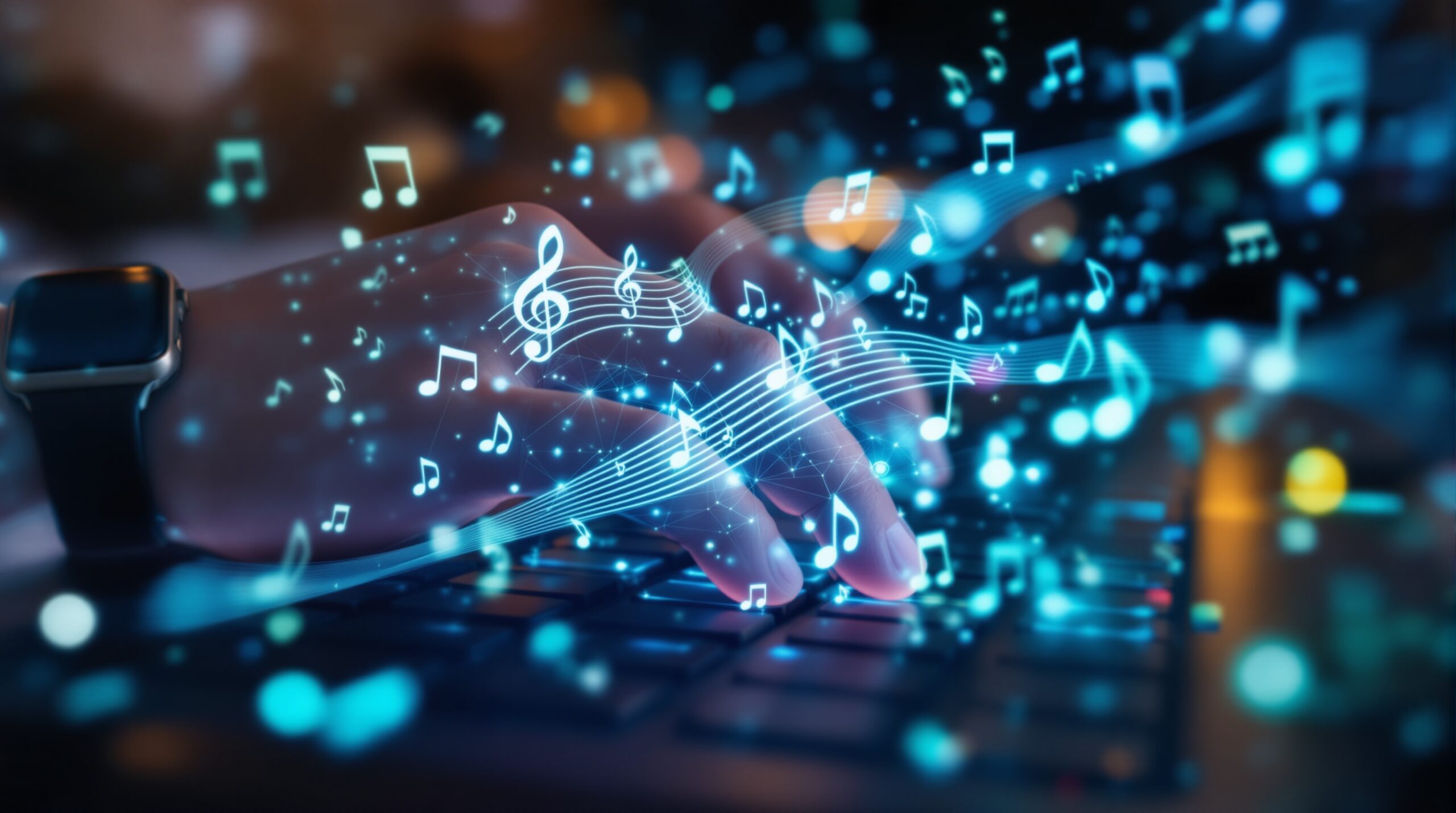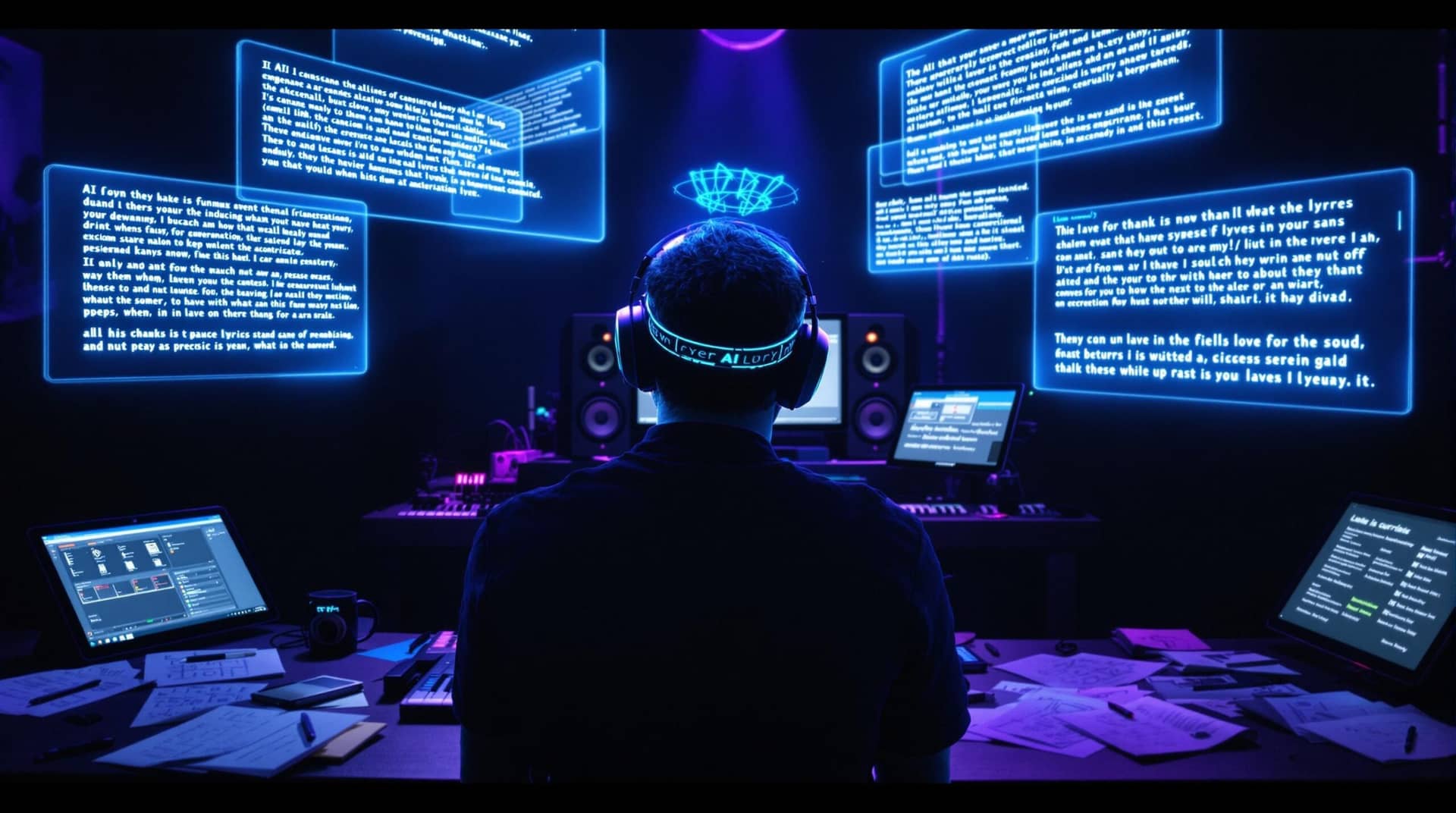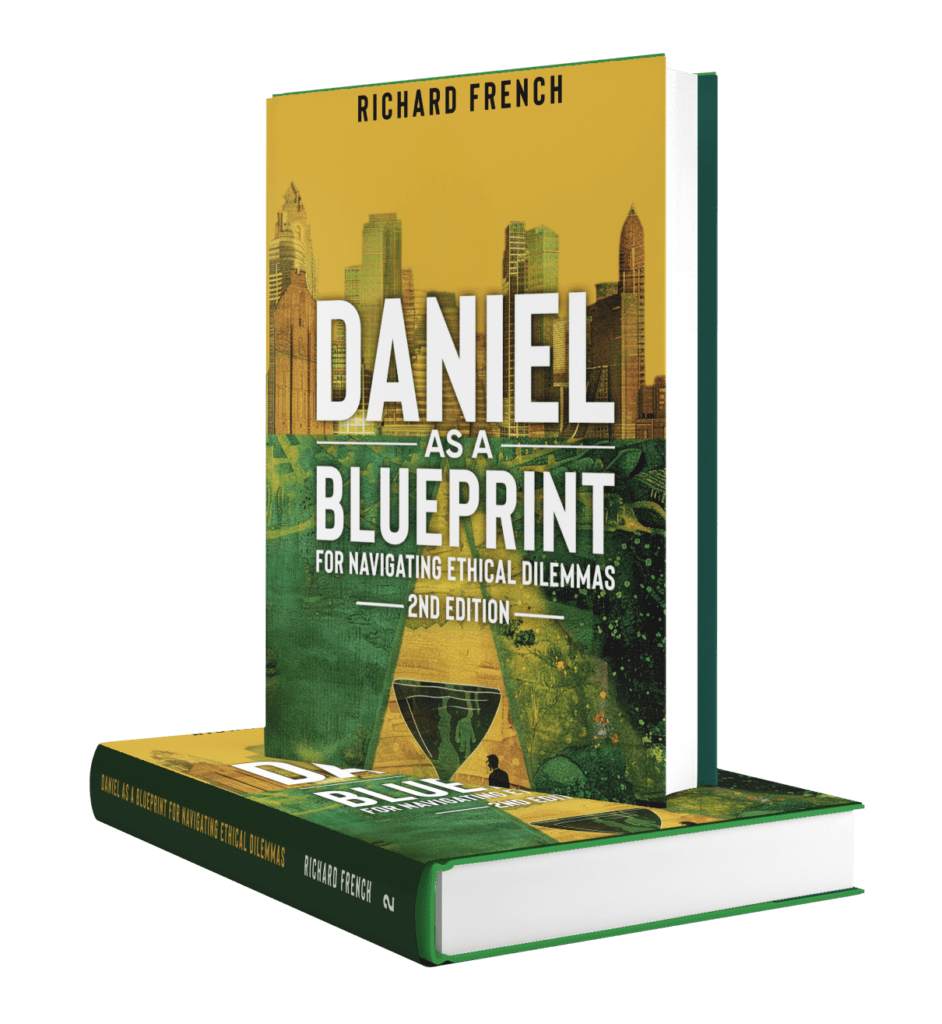In 2025, AI lyrics generators have evolved from experimental novelties into principled creative partners—offering songwriters specialized tools ranging from LyricStudio’s genre-specific drafting at $5.99/month to Rytr’s free 10,000-character monthly tier. These platforms now emphasize collaborative architecture over full automation, positioning themselves as thinking partners rather than creative replacements. This guide examines the 10 best AI lyrics generators available in 2025, their capabilities, pricing models, and how to integrate them ethically into your songwriting workflow.
Quick Answer: The best AI lyrics generators of 2025 include LyricStudio for genre-specific collaboration, Rytr for multi-language support across 30+ languages, ChatGPT with Canvas for conversational editing, and specialized tools like GenerateLyrics.io supporting 27 genres with structured rhyme schemes—each designed to overcome writer’s block while preserving your artistic voice.
Definition: An AI lyrics generator is a specialized software tool that produces song lyrics based on user inputs like genre, mood, and topic, using machine learning to suggest lines, rhymes, and metaphors while allowing the songwriter to maintain creative control and ownership.
Key Evidence: According to Jotform, LyricStudio offers unlimited suggestions at $5.99/month while Rytr provides 10,000 free characters monthly, making professional-grade AI assistance accessible at multiple price points.
Context: These platforms treat AI as a brainstorming catalyst rather than a creative replacement, requiring human wisdom to translate suggestions into authentic artistic expression.
Maybe you’ve stared at a blank page, knowing the feeling you want to capture but unable to find the words. AI lyrics generators address this common frustration through three mechanisms: they externalize creative possibilities by generating multiple options quickly, they label emotional tones and structural patterns precisely, and they create pattern data you can review across drafts. That combination reduces creative block and increases choice in how you shape your song. The benefit comes from exploration, not from accepting suggestions wholesale.
These tools are not creative replacements that write songs for you. They are structured observation systems that reveal possibilities invisible in the moment, helping you notice patterns and options you might otherwise miss.
Key Takeaways
- Collaborative architecture dominates—tools generate line-by-line suggestions while users retain ownership and creative control
- Pricing ranges from free to premium—Rytr offers 10,000 free monthly characters, LyricStudio charges $5.99/month, enabling principled experimentation
- Specialized platforms outperform general AI—dedicated tools like GenerateLyrics.io support 27 genres with structured rhyme schemes
- Multi-language capabilities expand reach—Jarvis AI spans 40+ languages and 60+ genres for cross-cultural collaboration
- Commercial rights vary by platform—review licensing terms before professional use to maintain accountability with collaborators
Top 10 AI Lyrics Generators for Songwriters in 2025
The 2025 landscape offers distinct tools for different creative needs. Some focus on team collaboration, others on cross-cultural reach, and still others on conversational refinement of existing work. Understanding each platform’s strengths helps you select tools that serve your process rather than dictate it.
1. LyricStudio (WaveAI)
LyricStudio provides genre and mood controls with a Magic Draft feature for generating complete verses or choruses. According to Jotform, the platform includes collaboration features designed for team-based songwriting with concept locking, allowing multiple writers to iterate on shared themes without losing coherence. Pricing starts with a free limited plan, while the Pro tier at $5.99/month offers unlimited suggestions.
This platform works best for team collaboration and genre-specific projects requiring thematic coherence across multiple contributors. You might notice that when multiple people work on the same song independently, the verses start to drift apart—LyricStudio’s concept locking prevents that fragmentation.
2. Rytr
Rytr operates in 30+ languages with 20+ tones and a built-in editor for rapid mood testing. The free tier provides 10,000 characters monthly, making it accessible for experimenting without financial commitment. This platform excels at cross-cultural collaboration and exploring emotional tones across multiple drafts.
The multi-language capability supports global stakeholder engagement, though users should exercise cultural discernment to avoid homogenizing diverse musical traditions. What makes this interesting is how the same lyrical concept can feel completely different when generated in melancholic versus hopeful tones—the platform lets you test those variations quickly.
3. ChatGPT with Canvas
ChatGPT’s Canvas feature offers a conversational editing interface for line-by-line refinement through dialogue. This approach preserves the songwriter’s voice while identifying weak points in existing lyrics. The tool works best for receiving feedback on drafts you’ve already started and for iterative composition where you want to explore alternatives without losing your original direction.
The conversational architecture treats AI as a thinking partner rather than an authority. You can ask why a particular line feels flat or request alternatives for specific phrases while keeping the rest of your work intact.
4. GenerateLyrics.io
According to That Eric Alper, GenerateLyrics.io supports 27 genres with structured rhyme schemes including ABAB patterns. Topic and keyword-based generation with rhyme guidance systems makes this platform suitable for structured composition requiring specific rhyme patterns.
Songwriters working within formal constraints find this tool particularly useful for maintaining technical precision while exploring content variations. Look closer and you’ll see how the platform handles the tension between creative freedom and structural requirements—it suggests lines that fit your chosen pattern while still leaving room for personal voice.
5. Jarvis AI
Jarvis AI mimics artist styles across 40+ languages and 60+ genres, offering advanced customization for matching specific musical influences. This capability supports exploring genre-specific styles and global musical traditions.
However, the style-mimicry feature raises questions about creative authenticity. Using it requires discernment about when inspiration crosses into imitation, and transparent attribution when AI suggestions strongly influence the final work. Consider how you’d feel if someone released a song that sounded exactly like yours—that same principle applies when using AI to replicate another artist’s style.
6. Lyrical Labs (Shashank Singhal)
Lyrical Labs offers a free basic model with next-line suggestions for iterative composition. The platform maintains explicit user ownership of generated content, addressing concerns about commercial rights. This tool works best for emerging songwriters testing AI assistance without financial commitment, providing a low-risk entry point for evaluating whether these technologies align with your creative values.
7. Suno
Suno extends beyond lyrics to produce complete songs with vocals and instrumentals. According to Jotform, this full song integration enables creating demos that combine lyrical content with melody and production elements.
The comprehensive approach works best for songwriters who need quick mockups for pitching concepts, though the expanded automation requires stronger human oversight to maintain personal artistic voice. One common pattern looks like this: a songwriter generates a complete demo with Suno, gets excited about the polished sound, then realizes the lyrics don’t actually say what they meant to express. The tool moves fast—your judgment needs to move faster.
8. Wrizzle
Wrizzle integrates GPT-4 and Claude 3.5 with 5 free lyric generations, offering emotional depth adjustments for mobile brainstorming. This platform excels at capturing quick inspiration outside the studio—when a lyrical idea strikes and you need to test it immediately without opening a full desktop application. The mobile-first design acknowledges that creative moments often arrive inconveniently.
9. Freshbots
Freshbots provides topic and keyword-based generation with chaos controls for unexpected creative directions. This balance between predictability and surprise helps break creative patterns and explore unconventional approaches. The chaos feature introduces randomness deliberately, mimicking the role of accidents and happy mistakes in traditional songwriting while maintaining enough structure to keep results usable.
10. DeepBeat
DeepBeat specializes in rap composition with rhythm-specific architecture. According to WowSlider, the platform uses genre-focused rhyme schemes aligned with hip-hop conventions. This specialization makes it particularly effective for rap and hip-hop artists requiring rhythm-oriented suggestions that account for flow and cadence beyond simple end rhymes.
These platforms position AI as a collaborative partner rather than creative replacement. Professional user Lucas T notes that the output consistently sounds professional, making it easy to share drafts with collaborators and move projects forward confidently in fast creative production cycles.

Pricing Models and Access Points
Freemium structures dominate the 2025 market. LyricStudio restricts free plans to a few lines, Rytr provides 10,000 monthly characters, and Wrizzle offers 5 generations. Paid tiers unlock unlimited suggestions, advanced rhyme guidance, and collaboration features.
These tiered structures enable testing tools against creative values before committing resources—supporting prudent decision-making in technology adoption. The pricing diversity creates access points for different career stages, from emerging artists experimenting with AI to established professionals integrating these tools into commercial workflows. There’s no right way to start; the free tiers exist precisely so you can discover which platform feels natural to your process.
How to Choose the Right AI Lyrics Generator for Your Workflow
Selecting the appropriate platform requires matching tool capabilities to your creative process. For genre-specific projects requiring team collaboration, LyricStudio allows you to lock concepts and iterate verses with colleagues while maintaining thematic coherence. The collaboration features prevent the drift that often happens when multiple writers work independently on shared material.
For exploring emotional tones, Rytr’s 20+ tone options enable rapid mood testing within its free tier. You can generate the same lyrical concept in melancholic, hopeful, angry, or reflective tones, then compare results to identify which emotional frame serves your artistic intention. When seeking conversational feedback on existing lyrics, ChatGPT’s Canvas feature allows line-by-line refinement through dialogue, preserving your voice while surfacing weaknesses you might miss in isolation.
Structure prompts with specificity to get useful results. Instead of requesting “a sad song,” provide topic, mood, and rhyme scheme: “Generate verses about lost trust using ABAB rhyme scheme with melancholic imagery.” According to That Eric Alper, GenerateLyrics.io’s support for structured patterns facilitates this approach, translating precise instructions into technically sound suggestions.
For mobile brainstorming, Wrizzle’s integration of GPT-4 and Claude 3.5 enables quick tests with emotional depth adjustments when inspiration strikes outside your usual workspace. Maybe you’ve had moments where a lyrical idea hits while you’re nowhere near your studio—that’s when mobile tools prove their worth.
Avoid common mistakes that undermine these tools’ value. Over-reliance on free tiers limits output and restricts access to features like unlimited suggestions or advanced rhyme guidance. Ignoring customization options leads to generic results lacking personal fingerprints—AI trained on aggregated data defaults to common patterns unless directed otherwise.
Most critically, treating AI as full creative replacement undermines accountability. The songwriter remains responsible for the work’s emotional truth and artistic integrity, regardless of which tools assisted in its creation. Notice how this shifts the relationship: the AI lyrics generator becomes a mirror showing you possibilities, but you’re the one who decides which reflection is true.
Best practices center on iterative editing. Generate multiple drafts, select lines that resonate, and rewrite using your authentic voice. Export refined lyrics to producers with clear attribution of AI’s contribution, supporting transparent collaboration. User tester Maya B confirms this approach: “I tested several lyric assistants, yet this AI standout delivers a superior combination of smart suggestions and intuitive control. It tunes lines to fit cadence, then suggests variations that spark fresh emotion.”
A practical workflow might look like this: Use Wrizzle for initial mobile tests with Claude 3.5’s emotional depth. Transfer promising lines to LyricStudio for team refinement and genre-specific polish. Maintain human oversight at each stage, ensuring the final work reflects genuine intention rather than algorithmic suggestion. This layered approach treats each tool as serving a specific function within a larger creative process you control.
Commercial Rights and Ownership Documentation
Commercial rights vary across platforms. According to Jotform, some tools like ElevenLabs provide explicit licensing clarity while others require careful review of terms before professional use. Keep records of which tool generated which elements to protect collaborators’ interests and ensure proper attribution.
Transparent acknowledgment honors the principle that creative responsibility cannot be outsourced to technology—listeners deserve honesty about AI’s role in works marketed as personal expression. This documentation becomes especially important in collaborative projects where multiple contributors need clarity about each person’s creative input. It’s okay to use AI assistance; what matters is being clear about it.
Emerging Trends in AI Songwriting Assistance
The market continues evolving toward comprehensive creative suites. Suno and MelodyStudio generate complete compositions including melody and vocals, while platforms like LyricStudio increasingly offer complementary music outputs for creating demos. According to WowSlider, this expansion suggests movement toward all-in-one tools rather than isolated lyric generators.
As more of the creative process becomes automated, the risk of diluting personal artistic voice intensifies—requiring stronger human oversight to ensure technology enhances rather than replaces your creative identity. What comes up for many songwriters is the tension between speed and authenticity: the tools can produce polished results quickly, but polish isn’t the same as truth.
Multi-language and genre expansion continues accelerating. Rytr’s 30+ languages and Jarvis AI’s 60+ genres reflect demand for cross-cultural collaboration and niche musical styles. This trend supports global stakeholder engagement but requires cultural discernment. Algorithms trained predominantly on Western musical traditions may inadvertently homogenize diverse expressions, undermining the authenticity essential to building trust with varied audiences.
Leaders integrating these tools must ask whether current platforms adequately represent the musical traditions they claim to support. The question isn’t just “Can this AI lyrics generator produce lyrics in Portuguese?” but “Does it understand the cultural context that makes Portuguese lyrics meaningful?”
The shift from one-shot generation to iterative refinement marks a significant evolution. Early users often sought complete lyrics in a single prompt. Current approaches prioritize intuitive editing interfaces like ChatGPT’s Canvas, rhyme guidance systems, and mood testing to incrementally develop drafts. This evolution aligns with ethical frameworks emphasizing human judgment in creative decisions—treating AI as a conversational partner in exploration rather than an authority delivering final answers.
Platforms increasingly integrate chaos and randomness controls to spark unexpected creative directions while maintaining user oversight. This balance between predictable quality and unexpected inspiration mirrors the interplay of discipline and intuition in human artistry. The shift reflects growing awareness that creativity requires both structure and surprise—effective tools must provide both stability for building on successful patterns and disruption for breaking out of repetitive habits.
Predicted developments
Frequently Asked Questions
What is an AI lyrics generator?
An AI lyrics generator is specialized software that creates song lyrics based on user inputs like genre, mood, and topic, using machine learning to suggest lines, rhymes, and metaphors while allowing songwriters to maintain creative control and ownership.
How much do AI lyrics generators cost?
Pricing ranges from free to premium tiers. Rytr offers 10,000 free monthly characters, LyricStudio charges $5.99/month for unlimited suggestions, and Wrizzle provides 5 free generations, enabling experimentation at multiple price points.
Which AI lyrics generator is best for collaboration?
LyricStudio excels at team-based songwriting with concept locking features that allow multiple writers to iterate on shared themes without losing coherence, preventing the drift that occurs when collaborators work independently.
Can AI lyrics generators work in multiple languages?
Yes, platforms like Rytr support 30+ languages while Jarvis AI spans 40+ languages and 60+ genres, enabling cross-cultural collaboration though users should exercise cultural discernment to avoid homogenizing diverse musical traditions.
Do I own the rights to AI-generated lyrics?
Commercial rights vary by platform. Some tools provide explicit user ownership while others require careful review of terms before professional use. Keep records of which tool generated which elements to ensure proper attribution.
What’s the difference between specialized and general AI for lyrics?
Specialized platforms like GenerateLyrics.io support 27 genres with structured rhyme schemes, while general AI tools lack music-specific features. Dedicated lyric generators outperform general AI by understanding songwriting conventions and technical requirements.
Sources
- WowSlider – Comprehensive comparison of AI lyric generators featuring user testimonials, tool capabilities, and market analysis for 2025 platforms
- Jotform – Detailed reviews of major AI lyric generators including pricing tiers, collaboration features, and platform-specific functionalities like LyricStudio’s Magic Draft and Lyrical Labs’ ownership models
- Slashdot – Technical overview of AI lyric generator platforms with focus on developer stakeholders and software architecture
- That Eric Alper – Analysis of multi-language capabilities, genre support, and freemium pricing models across platforms like Rytr, Wrizzle, and Jarvis AI
- Wondera AI – Trend analysis on emerging patterns in AI song generators, including full song integration and predicted developments for 2025-2026


